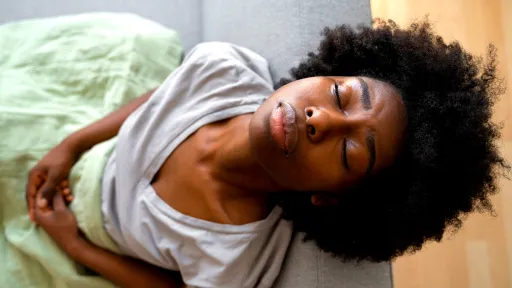
In many African households and communities, menstruation is still whispered about, if it is talked about at all. Wrapped in silence, shame, or vague euphemisms, the topic is often reduced to a monthly “problem” to be managed discreetly. Yet for millions of women and girls, menstruation is not merely a physical cycle, it is deeply connected to their emotional and mental well-being.
While conversations around access to sanitary products and menstrual hygiene have thankfully gained more traction in recent years, the psychological and emotional toll of menstruation remains dangerously under-discussed, especially in traditional settings where taboos still rule.
Here are 10 things we need to start talking about more openly when it comes to menstruation and mental health in our families, schools, and communities:
- Mood Swings Are Not “Drama”
Hormonal changes during the menstrual cycle can trigger irritability, anxiety, or sadness. Offer empathy instead of judgment. Families, teachers, and peers should be educated to recognise mood swings as part of the cycle and respond with understanding rather than dismissal. Emotional literacy workshops in schools can help.
- Premenstrual Dysphoric Disorder (PMDD) Is Serious
PMDD is not just a bad mood—it's a severe condition that can affect mental health deeply. Raise awareness in schools and health clinics about PMDD and the importance of professional diagnosis. Encourage early conversations so girls know they can seek help and are not alone.
- Don’t Let Shame and Silence Do Harm
When girls are taught to hide their periods, they often suffer in silence. Create open forums at schools, churches, and community centres where girls can safely ask questions and share experiences without fear. Use culturally relevant storytelling to break taboos.
- The First Period Can Be Traumatic
Without proper education, a girl’s first period can be a confusing or frightening experience. Introduce pre-adolescent menstrual health education for both girls and boys. Community aunties, nurses, or trained volunteers can lead these sessions with care and cultural sensitivity.
- Menstrual Pain Affects More Than the Body
Severe period pain can impact a girl’s daily life and self-esteem. Promote access to menstrual health services, including options for pain relief. Train caregivers to take complaints seriously and link girls to clinics that can provide diagnosis and treatment.
- Menstruation Impacts School Performance
Fatigue, anxiety, and discomfort can make learning a challenge. Equip schools with clean, private washrooms, pain relief medication, and sanitary products. Teachers should be trained to handle menstruation-related issues with sensitivity and support.
- Many Women Lack the Language for How They Feel
Emotional expression is often discouraged in traditional cultures. Encourage peer-support groups and storytelling circles where women and girls can openly discuss their experiences and feelings. Language evolves when we create safe spaces for honest talk.
- Spiritual Stigma Can Deepen Psychological Burdens
In some communities, menstruating women are excluded from religious or social spaces. Faith leaders can play a vital role in dismantling harmful beliefs. Engage religious institutions in dialogue around dignity, inclusion, and reinterpreting traditions in empowering ways.
- Boys and Men Need to Be Part of the Conversation
When boys aren’t educated, stigma grows stronger. Include boys in menstrual health education from an early age. Promote male role models who advocate for menstrual dignity and support the women in their lives.
- Mental Health Support Isn’t “Foreign”
Too often, seeking help is seen as a sign of weakness or a Western concept. Normalise therapy and counselling as part of holistic well-being. Leverage community health workers and local wellness advocates to introduce mental health support in relatable ways.
Final Word:
Menstruation is not just a biological event, it’s a deeply emotional and social experience. By talking openly, listening with empathy, and providing solutions grounded in community, we can transform silence into strength. Menstrual dignity is mental health dignity too.
Disclaimer:
This article is based on independent research and insights gathered from various sources, including publicly available information and expert commentary. It is intended for general awareness and educational purposes only. The content has not been reviewed or verified by a licensed medical or wellness professional. For personalised health or mental health advice, diagnosis, or treatment, please consult a qualified healthcare provider.